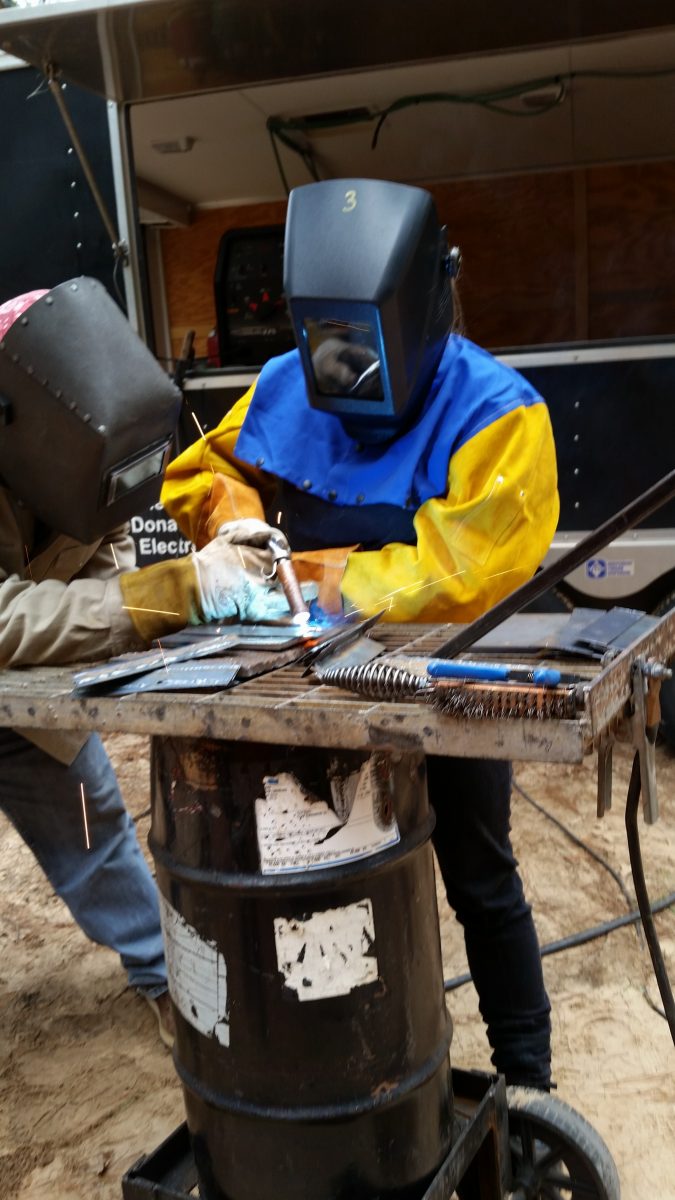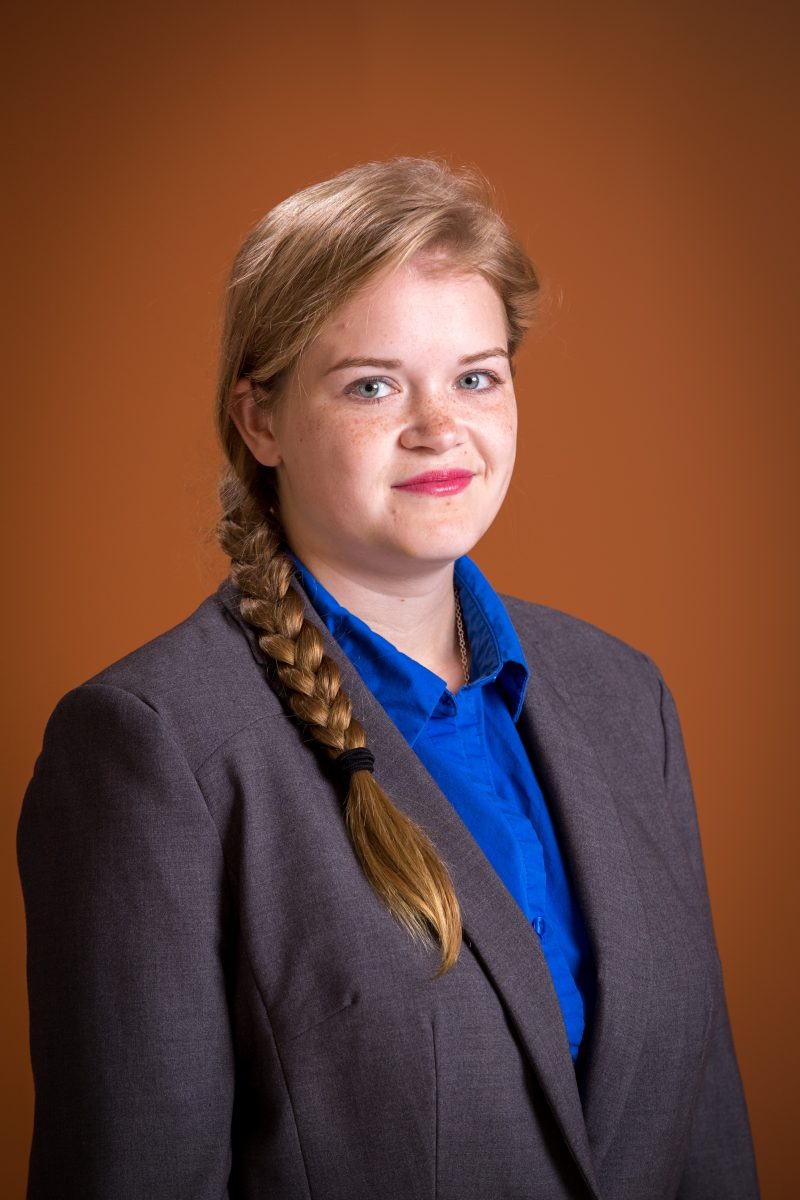We spend our lives taking steps towards the future. Kindergarten productions inspire budding thespians, seventh grade band recitals turn young musicians into professional ones, and high school athletics give way to careers in sports or medicine. Other times, a mentor comes along and provides insight to opportunities which – much like the stage or stadium lights – illuminates a path that changes the course of your academic future.
And then you graduate.

The shortest distance seniors walk towards their future is across the graduation stage and after the commencement advice, it’s hats off. After all, graduation is the finish line, right?
Not for recent graduate Gisselle Hoover. Born into a family of engineers, Gisselle knew at the age of eight that engineering was a part of her trajectory. Time spent in middle and high school working with circuits inspired her to focus on electrical, versus chemical or mechanical engineering. Though Gisselle began her career at UT Dallas without prior experience in research, an internship in the summer of 2015 with the Office of Naval Intelligence (ONI) provided her experience in data mining practices that she further developed while working towards dual degrees in Electrical Engineering and Historical Studies.
Through her UTDesign project that Fall, Gisselle met her faculty mentor, Jeff Campbell, who told her about the Applied Research Center (ARC). It was here that she would be presented with another path. Directed by Dr. Fishman, work at the ARC would allow Gisselle the opportunity to advance her knowledge in both an academic and industry environment – and she made the leap to join the research race.
“The idea of being able to build something that is real, new, and that people will actually use is a very attractive thing to me.”
Gisselle tells us: “He [Campbell] was definitely incredibly helpful in my transition to research work. I had never done it before, so learning how a research lab works and specifically how [the] ARC works…was much easier with his help.”
Gisselle’s previous projects were more software-oriented, but a partnership with DUALAMS at the ARC gave her the opportunity to move in a new direction: hardware. While supervising her project, Gisselle’s advisor met with her and her industry sponsor to highlight important topics to guide their progress. Gisselle’s experience in data mining and design contributed to her research with DUALAMS, but the mentor-student ratio at the ARC gave Gisselle the opportunity to engage with sponsors and learn about the funding process, as well. Her research, utilizing ultrasonic transducers to generate a mist in nebulization treatment, aims to improve patient care and lower medical costs, as well as minimize treatment time for doctors.
“…When you do research you get to be at the head of new information, products, and discoveries and it is such an amazing opportunity to be able to work at the forefront of new technology.”
Medical drips, particularly those used in numbing a patient’s airway prior to a flexible laryngoscopic exam, often cause adverse complications. These can result in discomfort and pain for the patient, as well as difficulties for the practitioner. Drips can cause impediments such as choking to occur, potentially causing the practitioner to abort the treatment. With the DUALAMS System, flexible endoscopes steer nebulized lidocaine, targeting specified areas to maximize the medications effectiveness.
“The idea of being able to build something that is real, new, and that people will actually use is a very attractive thing to me.”

Gisselle’s research training has prepared her for the next leg of her career. After graduation, she’ll be working on the Lockheed Martin team in a digital signal processing (DSP) environment. While participating in a list of organizations and volunteer opportunities, as well as making the Dean’s List, Gisselle played rugby for UTD’s women’s club team and enjoys historical games in her leisure time. Intending on pursing her master’s degree after gaining additional work experience, Gisselle offers advice to incoming students considering a career change to research.
“…Go for it. When you do research you get to be at the head of new information, products, and discoveries and it is such an amazing opportunity to be able to work at the forefront of new technology.”
In commencement terms: step towards the future and lead the race.
Note: Rugby and welding photography compliments of Gisselle Hoover.

You must be logged in to post a comment.